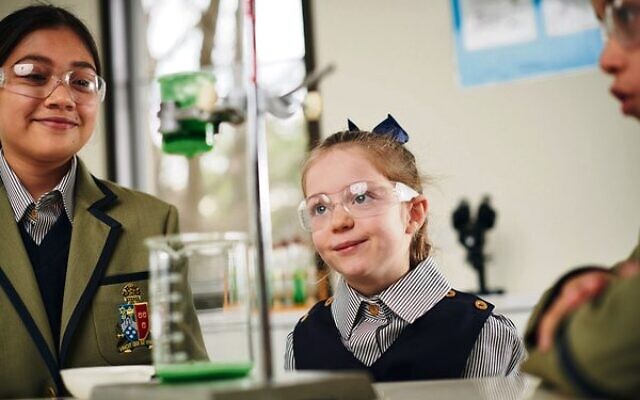A shift in choices for 2022
Due to COVID-19 and lockdowns, many (mostly VCE) parents have changed their attitude towards which subjects their child should study, with some changing their views on which career their child should choose...
Job instability during the COVID-19 pandemic reshuffled the priorities of millions of students and their parents, who placed greater importance on work passion and financial security, according to newly-published research.
The Omni Poll research, commissioned by Firbank Grammar School that has been exclusively revealed first to The AJN, found that due to COVID-19 and lockdowns, many (mostly VCE) parents have changed their attitude towards which subjects their child should study, with some changing their views on which career their child should choose – with a trend moving away from occupations that suffered during the pandemic to those that flourished.
The peer reviewed journal by Socius and Omni Poll also noted the change of career priorities of student’s parents and university-educated workers who lost their jobs or were furloughed during the pandemic.
Firbank Grammar School principal Jenny Williams said that the research suggests employment instability can spark a complete family rethink, across several generations of the community, to what career path and subject choices they make.
“We saw a marked increase of a head towards medicine, nursing and other frontline services. It shows two things; firstly, that our students saw a community and professional need and have headed towards that, which is amazing.
“However, it also revealed that frontline services like medicine and nursing are all secure jobs that require commitment to study, and reflect the school’s ability to provide a first-rate education to help them achieve the ATAR they will need.
“These results indicate that the economic fallout accompanying the pandemic did not quell the popularity of meaning and fulfilment as guiding principles for career decision making.
“The experiences of pandemic-related employment instability may have even amplified it.”
Further findings
According to Firbank Grammar. the impact that COVID-19 and associated lockdowns had on students and parents included:
- Over the past 18 months, half of the polled students “missed” more than four months of school due to COVID-19 restrictions or lockdowns. Melbourne Metro students, on average, lost more than 200 learning days.
- A majority of parents were heavily involved in their children’s home-schooling: 56 per cent of parents were ‘involved a lot’, with more involvement from mothers (66 per cent). Unsurprisingly, the younger their child is, the more the parents were involved in home-schooling.
- 83 per cent of parents felt that their child’s studies had been harmed because of lockdowns, and two in three parents think their child is behind in his/her studies.
- 54 per cent of parents are happy with their child’s school performance during lockdowns, rating their performance as good (33 per cent) or very good (21 per cent). Satisfaction is slightly higher for parents with kids in private schools (59 per cent) versus public schools (52 per cent) but with no differences between school years. The impact of lockdowns on student studies were also found to directly co-relate with a school’s performance rating.
Firbank leading the way
The COVID-19 pandemic has been a challenging time for schools, students and home-schooling parents doing their best to educate whilst working from home, however some schools rose above the rest in meeting that change and forging ahead with new ways to learn and keep safe.
At the beginning of COVID-19, teachers at Firbank Grammar School were determined that students would continue to learn despite Melbourne’s repeated lockdowns. They developed educational programs that ensured student engagement and growth during Melbourne’s two years of disrupted onsite learning in schools raising the standard off best practice for others to follow.
Williams said their goal was for students to experience interacting with their teachers and classmates despite being isolated in their homes regardless of their age.
“During the lockdown, our natural face-to-face interactions disappeared so we prioritised ensuring all our students, from the youngest to our seniors had access to safe devices which enabled online real time learning,” she said.
“We were able to open up all our platforms to our entire student body in record time and turn around. There was almost no downtime.”
Firbank’s students, whose ages range from three in ELC up to its VCE students, could attend virtual and interactive presentations, participate in activities, and even have sports competitions from their home. Even the Allied Health VCE students were practicing CPR on pillows in their own homes.
“When other schools had weeks off to adjust to the new online climate, our school took advantage of the investments it had previously made in its IT infrastructure. Our staff knew what had to be done and they not only turned it around quickly, but they excelled. We even had innovative ways to continue school life such as a ‘click and collect’ library service and team training sessions,” explained Williams.
When it came time to return to onsite learning, the school made national headlines when it implemented leading safety protocols, such as mandatory staff vaccinations and rapid COVID testing at the gate.
“Our priority was to provide the safest environment possible for staff and students, and particularly to protect our returning VCE students and keep them safe during their exam period,” said Williams.
“We knew that we were an innovative and progressive school, but the lockdowns and the pandemic showed the whole of Australia how, for us at Firbank, no challenge goes unanswered.”
For more information on the research commissioned by Firbank Grammar, or for more information on the school, visit firbank.vic.edu.au.
Promotional feature


comments